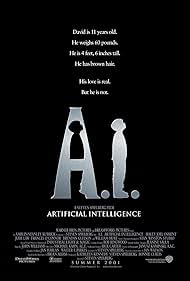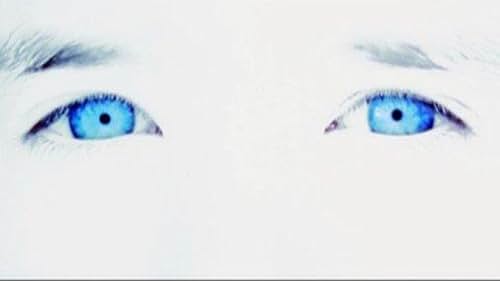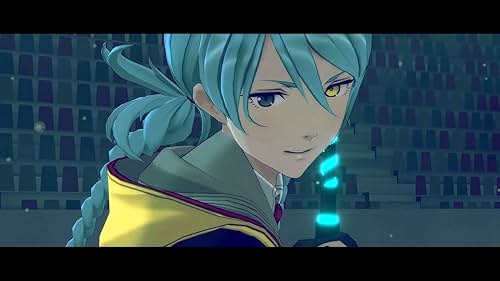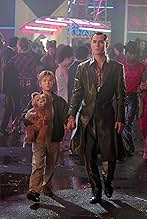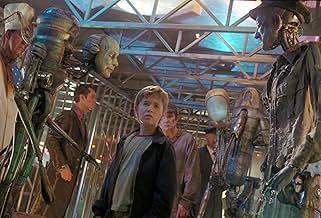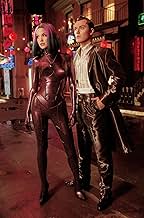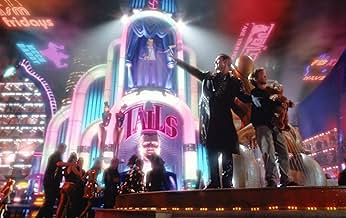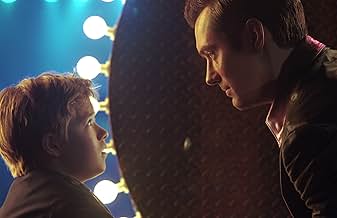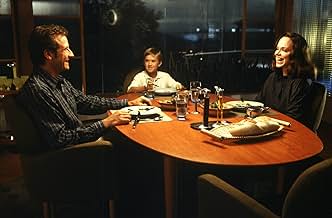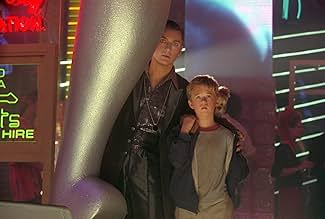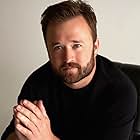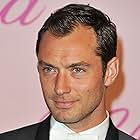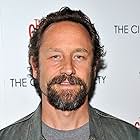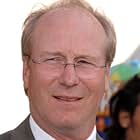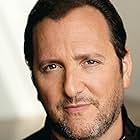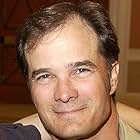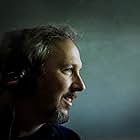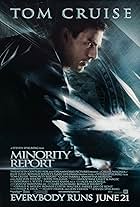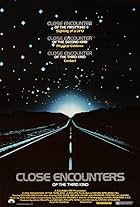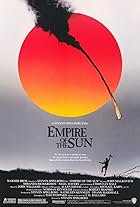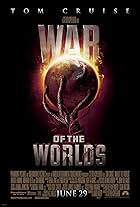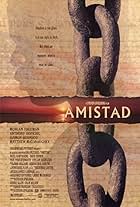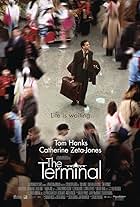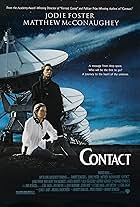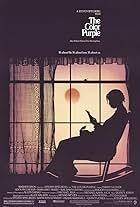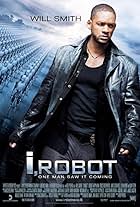A highly advanced robotic boy longs to become "real" so that he can regain the love of his human mother.A highly advanced robotic boy longs to become "real" so that he can regain the love of his human mother.A highly advanced robotic boy longs to become "real" so that he can regain the love of his human mother.
- Nominated for 2 Oscars
- 17 wins & 71 nominations total
- Director
- Writers
- All cast & crew
- Production, box office & more at IMDbPro
Storyline
Did you know
- TriviaStanley Kubrick worked on the project for two decades before his death, but along the way, he asked Steven Spielberg to direct, saying it was "closer to his sensibilities." The two collaborated for several years, resulting in Kubrick giving Spielberg a complete story treatment and lots of conceptual art for the movie prior to his death, which Spielberg used to write his own scenario. Contrary to popular belief, Spielberg claims he introduced many of the darker elements into the story, while Kubrick's main contribution consisted mostly of its "sweeter" parts. In a 2002 interview with movie critic Joe Leydon, Spielberg indicated that the middle part of the movie, including the Flesh Fair, was his idea, whereas the first forty minutes, the Teddy bear, and the last twenty minutes were taken straight from Kubrick's story. Ian Watson, who wrote Kubrick's original treatment, confirmed that even the much-criticized ending, assumed by many to be a typical Spielberg addition, was "exactly what (he) wrote for Stanley, and exactly what he wanted, filmed faithfully by Spielberg."
- GoofsMuch of the film's early action takes place in Haddonfield, New Jersey. New York City is subsequently shown to be under water. Haddonfield's elevation (81 feet) is lower than that of New York City (87 feet), and it is near both the Atlantic coast and a river leading to the ocean, so Haddonfield should be under water too.
- Quotes
[last lines]
Narrator: [narrating, as David lays next to Monica in bed] That was the everlasting moment he had been waiting for. And the moment had passed, for Monica was sound asleep. More than merely asleep.
Narrator: [David holds Monica's hand, closing his eyes] Should he shake her she would never rouse. So David went to sleep too. And for the first time in his life, he went to that place... where dreams are born.
- Crazy creditsSentient Machine Therapist ... JEANINE SALLA Assistant to Mr. Chan ... LAIA SALLA Toe-Bell Ringer ... KATE NEI Cybertronics - Room 93056 ... CLAUDE GILBERT Sentient Machine Security ... DIANE FLETCHER Covert Information Retrieval ... RED KING These are characters from the AI alternate-reality game that was connected to the release of the film, and was played over the Internet. Several of the TV and cinema trailers for AI contained clues for game players, including the name Jeanine Salla listed in the credits at the end of the first trailer. This was the way into the game. The room number given in Claude Gilbert's credit is a further clue to game players.
- Alternate versionsFor the U.S. theatrical release, the Warner Bros. logo appeared before the Dreamworks logo at the beginning of the film, and the poster credits said, "Warner Bros. and Dreamworks Pictures present." Since the U.S. version's home video/DVD rights are owned by Dreamworks, the Dreamworks logo at the beginning of the movie appears before the Warner Bros. logo, and the back of the box's cover art says, "Dreamworks Pictures and Warner Bros. present."
- SoundtracksWhat About Us
Written by Al Jourgensen, Paul Barker, Max Brody and Ty Coon (as Deborah Coon)
Produced by Al Jourgensen and Paul Barker with Robert Ezrin (as Bob Ezrin)
Performed by Ministry
Featured review
Steven Spielberg's AI fails to live up to its billing, which really bothers me, because artificial intelligence is such a rich and variegated subject, traversing the fields of biophysics, psychology, philosophy, and even religion, that the payoffs for careful consideration of this subject are potentially great, perhaps even inspiring. Spielberg, it seems, didn't even bother to make a trip to the library, preferring instead to invest awkward and incomprehensible phrases like `human beings are the key to the meaning of existence' with eschatological gravitas.
Throughout this film, Spielberg drives home one theme over and over and over: humans are more programmatic, both in their thinking, and their behavior, than `mechas.' We watch David's parents first adopt and then abandon the robot boy because of their prejudice about what is `real' and what is not, a deliberate irony seeing as how David is in many ways more human than their biological son. We see a perfectly ridiculous `Flesh Fair' thrown into the movie to embellish this point: the `artificiality' these humans seek to destroy might just as well be their own.
At worst, the movie has a psychotic message. At the heart of the film, Professor Hobby, who designed David, delivers an impassioned speech, telling him that his singular quest to become a `real' boy at the magical hand of the Blue Fairy is a human flaw which is also humanity's `greatest single' gift: The ability to `chase down dreams. ` Problem is, if a human dreamed of becoming a non-organic being, and could not find surcease from his labors to do so, he would become, if not already, psychotic. Why Mr. `Hobby' couldn't have made the boy to accept himself as he is, which is the essence of human spirituality, seems never to have occurred to him. And so one leaves the movie with a sick feeling in the pit of one's stomach, due largely to the fact that this psychotic idea is presented as an axiom, with religious fervor.
AI succeeds in being artificial, but not in showing intelligence.
Throughout this film, Spielberg drives home one theme over and over and over: humans are more programmatic, both in their thinking, and their behavior, than `mechas.' We watch David's parents first adopt and then abandon the robot boy because of their prejudice about what is `real' and what is not, a deliberate irony seeing as how David is in many ways more human than their biological son. We see a perfectly ridiculous `Flesh Fair' thrown into the movie to embellish this point: the `artificiality' these humans seek to destroy might just as well be their own.
At worst, the movie has a psychotic message. At the heart of the film, Professor Hobby, who designed David, delivers an impassioned speech, telling him that his singular quest to become a `real' boy at the magical hand of the Blue Fairy is a human flaw which is also humanity's `greatest single' gift: The ability to `chase down dreams. ` Problem is, if a human dreamed of becoming a non-organic being, and could not find surcease from his labors to do so, he would become, if not already, psychotic. Why Mr. `Hobby' couldn't have made the boy to accept himself as he is, which is the essence of human spirituality, seems never to have occurred to him. And so one leaves the movie with a sick feeling in the pit of one's stomach, due largely to the fact that this psychotic idea is presented as an axiom, with religious fervor.
AI succeeds in being artificial, but not in showing intelligence.
Details
- Release date
- Countries of origin
- Official site
- Language
- Also known as
- I.A. Inteligencia Artificial
- Filming locations
- Production companies
- See more company credits at IMDbPro
Box office
- Budget
- $100,000,000 (estimated)
- Gross US & Canada
- $78,616,689
- Opening weekend US & Canada
- $29,352,630
- Jul 1, 2001
- Gross worldwide
- $235,926,635
- Runtime2 hours 26 minutes
- Color
- Sound mix
- Aspect ratio
- 1.85 : 1
Contribute to this page
Suggest an edit or add missing content
